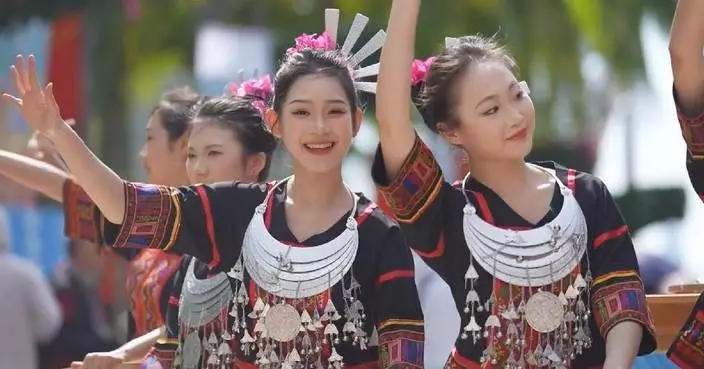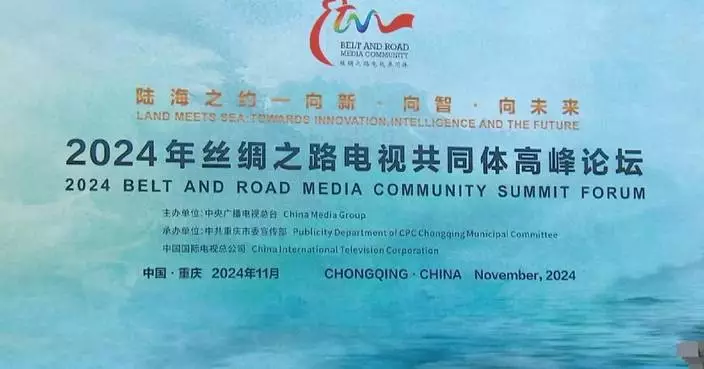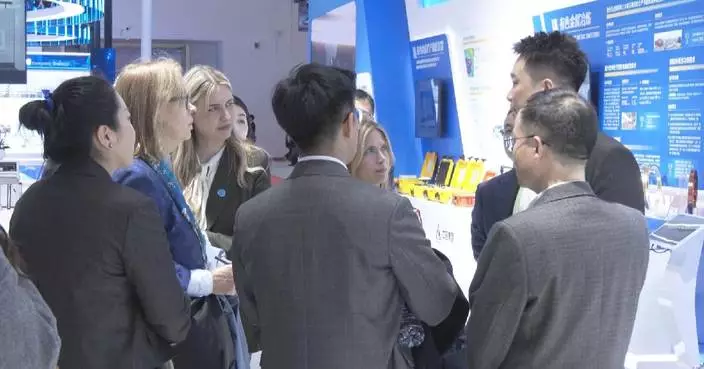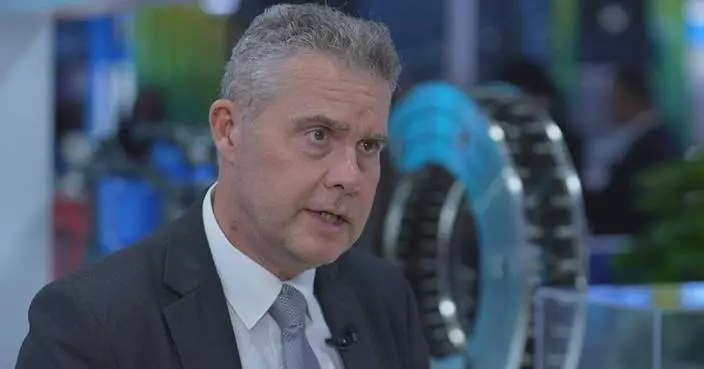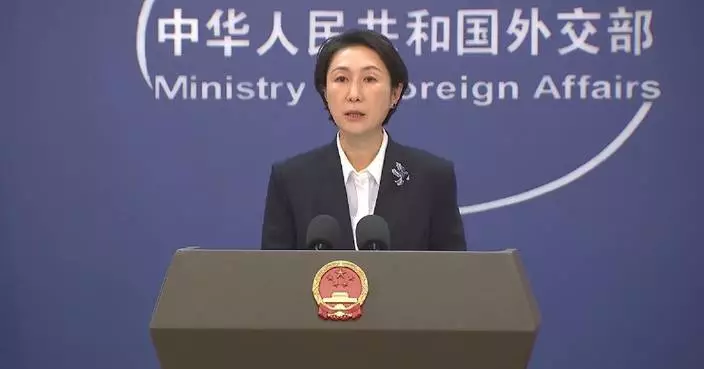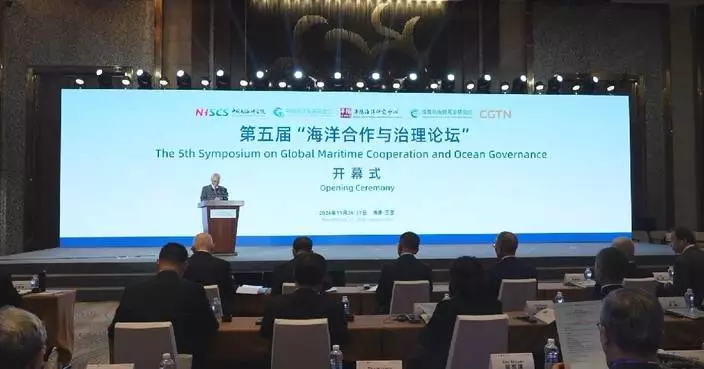Public sentiment within the European Union (EU) favors a mutually acceptable solution with China regarding the anti-subsidy probe into Chinese electric vehicles (EVs), to avoid damaging the EU's economy and hindering its green transition, especially as the region faces economic headwinds and setbacks in its EV industry.
Although the EU has intentions to phase out internal combustion engine vehicles, factors such as high prices of EVs, limited charging infrastructure, as well as reduced government subsidies have dampened consumer enthusiasm.
A study by the European Automobile Manufacturers' Association (ACEA) has highlighted substantial shortcomings in the EU's pursuit of zero-emission targets, with nearly all key indicators falling short of expectations.
This underscores a substantial disparity between the EU's zero-carbon ambitions and the current situation.
A Brussels resident named Bokri expressed concern about the EU's imposition of tariffs on Chinese EVs.
"I think the first consequences, of course, are higher prices for consumers. But I think the long-term consequences are even more serious because that delays the transition to a low-carbon society and so that hinders the green transition," he said.
Amid economic downturn risks and widespread challenges in the EV transition process, many European experts have cautioned against escalating trade disputes with China, saying that lifting tariffs on Chinese EVs and promptly finding a mutually beneficial solution would serve the EU's interests and secure its green transition and economic stability.
"One of the biggest victims of these custom duties is a German company like BMW. Therefore, the German car companies have not been in favor of having such custom duties. But now, China quite correctly has said it wants to have this problem solved inside WTO rules. And I think this is the way Europe is happy," said Gerhard Stahl, former secretary general of the Committee of the Regions.
"Trade conflicts are bad for everybody. Nobody wants trade conflicts because we all benefit from trade, we need each other's markets. We need each other's economic impulses," said Fabian Zuleeg, CEO of the European Policy Center.
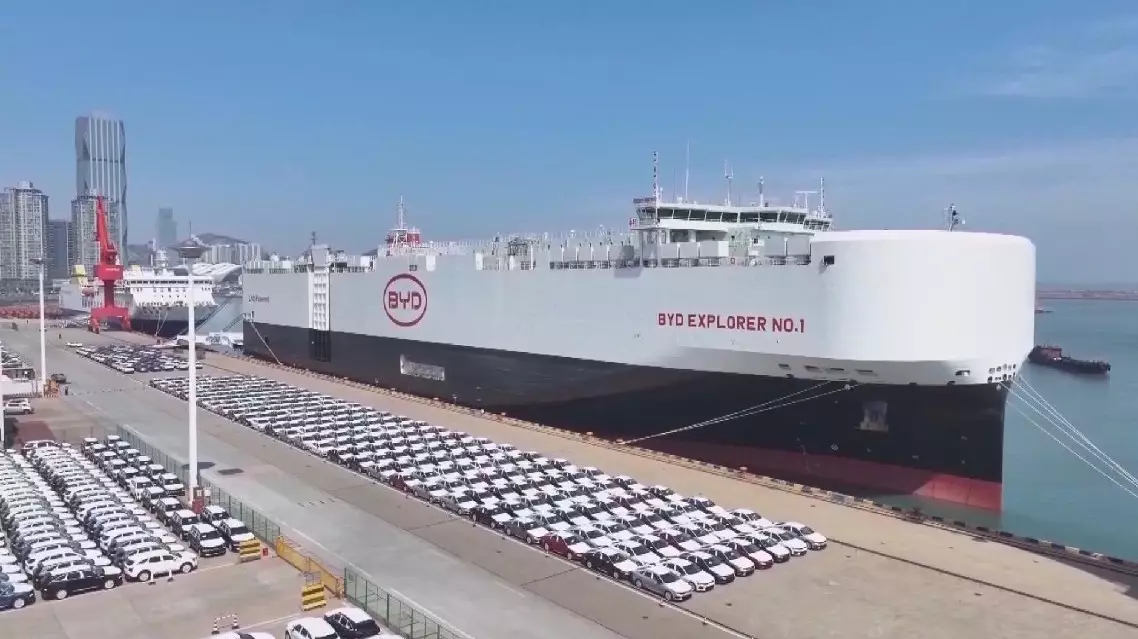
EU faces pressure to resolve EV tariff dispute with China
A delegation of 40 students and teachers from seven Chinese mainland universities arrived at Taiwan's Taoyuan International Airport on Wednesday, embarking on their nine-day visit to the island.
Invited by the Taiwan-based Ma Ying-jeou Culture and Education Foundation, the delegation is led by Qiu Yong, chairman of Tsinghua University Council.
The delegation includes table tennis Olympic champion Ma Long studying at Beijing Sport University, and air rifle Olympic champion Yang Qian studying at Tsinghua University.
"I came from Taipei today, and I arrived at Taoyuan Airport at 09:30 because I was worried that there would be too many people here. I brought the photos that my friends sent me today, and I'm very happy. I also wrote a letter to Ma Long because I was worried that I would be too excited if I really saw him in person. We welcome students from the mainland to come to Taiwan for exchanges, and wish them to enjoy delicious food and drink and have fun here," said Lai Chin-hsuan, a Taiwan resident.
This is the second delegation of mainland teachers and students visiting Taiwan at the invitation of the Ma Ying-jeou Foundation, following the first delegation in July last year.
The delegation visited a high school on Wednesday afternoon as scheduled.
Hsiao Hsu-tsen, executive director of the foundation, said exchanges and contacts between young people of the mainland and Taiwan region are very important to the development of cross-Strait relations.
"When I arrived earlier, the fans had already lining up at the airport a few hours in advance, so I really think this is a very exciting phenomenon. It means that no matter how depressed the cross-Strait relationship is, sports and youth exchanges will always be common topics and language between the two sides. College students and high school students on both sides of the Taiwan Strait need to know each other very much. I think it is very meaningful to have so many top mainland students visit our most outstanding high school in Taiwan today," said Hsiao.
Besides the high school, the delegation is scheduled to visit some universities, the Taipei 101 tower and the Taipei Palace Museum from Nov 28 to 30. It will also visit the Sun Moon Lake, participate in a baseball activity and visit another historical museum from Dec 1 to 4.
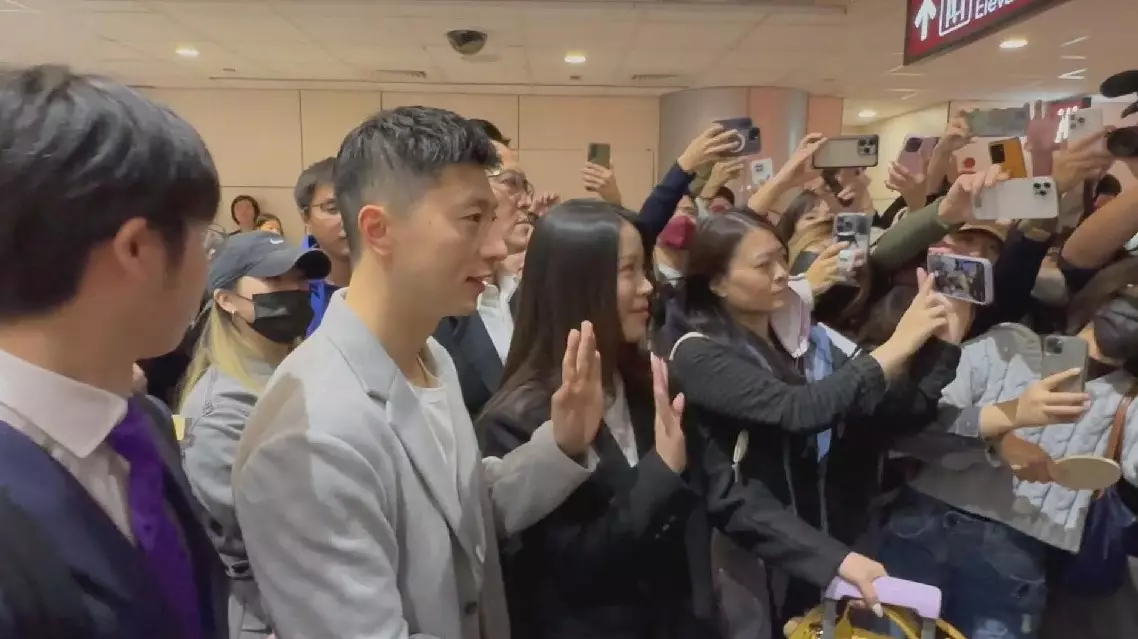
Delegation of mainland university students, teachers embarks on Taiwan visit




